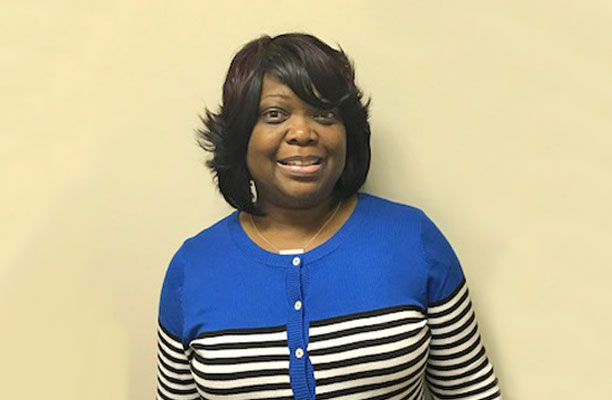
Tamiko Jones-Moody is a treatment coordinator in Charleston, SC. She has been working with children and foster parents for 15 years.
A grateful mother suggested that we feature Tamiko on our website. She wrote:
“Tamiko has been beyond helpful in my journey as a foster parent. I met her shortly after I decided to foster, when one of my students wrote me a letter begging me to adopt her. Tamiko was her caseworker. Tamiko helped me get my foster license. She made the process seem effortless and was always available when I had a question or concern. This child is now my daughter, and we are working toward adoption!”
How would you describe your job?
My primary role is keeping children in a stable placement until we can find an adoptive family for them or they can be reunified with their birth family. One key to this work—to providing this much-needed stability—is supporting the foster parents and being sure that they have what they need—like respite care when they need a break.
I’ve been doing this job for 15 years, and at any given time I have about 16 kids on my caseload. So unfortunately, I’ve had kids age out of care. But when you have good foster parents who the kids have been living with for a while, even when they haven’t been adopted, they become part of the family and aren’t completely on their own when they turn 18 or 21.
What attracted you to working with families in foster care?
It’s simple: I love helping people and seeing kids be reunified with their birth family or find a forever home.
What keeps me doing this work are the relationships I have with the foster parents and the kids. I get really involved in their lives and spend a lot of time with them. I’ve had kids say, “Miss Tamiko must live here,” because I’m at their house all the time. And sometimes it does feel that way!
What is the biggest challenge or obstacle to doing your job?
Time. There is never enough time in the day to get everything done and emergencies are always coming up. I might start the day planning to work on my to-do list and end up at a school talking with a teacher about a kid who’s having a crisis. To succeed in this job, you need to be flexible and be willing to take the paperwork home sometimes.
If you are taking paperwork home at night, how do you balance your work and home life?
Sometimes it’s hard. I’m married, and on Saturdays, my husband and I have “date days.” It’s just for him and me. We don’t let anything interfere with that. It’s just our time.
I will give a lot of credit to my foster parents. They are very respectful and only call or text if it is an emergency. Of course, I’ve worked with many of them for several years and we’ve had conversations about what constitutes an emergency!
What are the biggest rewards of your work?
Seeing kids succeed and feeling like I am part of the reason. Here’s one recent example.
For years I worked with a boy who was always getting in trouble at school. He wasn’t doing work and was skipping class. The foster parents and I were constantly being called to the school for some reason.
Last year, he finally buckled down and got all of his work done to where he was able to walk with his graduating class. That was rewarding because he finally believed what I and his foster parents were telling him—that he was smart and he was a good kid—and ignored the negative influences. He’s going to enter the military next month, and I’m sure he’s going to do great.
Nominate an Outstanding Caseworker!
Do you know a caseworker who has gone above and beyond to help children in foster care find permanency? If so, nominate them as an Outstanding Caseworker to be featured on our blog.